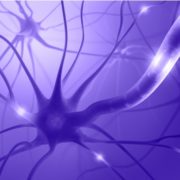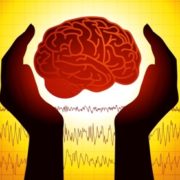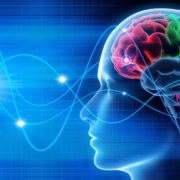Transcranial Magnetic Stimulation Side Effects are Minimal
Learn about What to Expect with TMS Side Effects
If you are happen to be researching transcranial magnetic stimulation (TMS) for the treatment of depression you have most likely had it with the systemic side effects caused by antidepressants and are now seeking an alternative approach. It is well known that antidepressants can leave you with weight gain, a reduced libido, fatigue, gastrointestinal problems, impotence, anxiety, and chronic headaches, to name just a few of these adverse effects.
Struggling with the side effects of the drugs may be worth it if they help alleviate the awful symptoms of depression. However, in up to 50% of patients with major depressive disorder, these medications simply do not work. After trialing two or three different antidepressants with unsuccessful results, it is no wonder that you are looking for relief via alternative treatment methods.
When exploring treatment options for medication-resistant major depressive disorder (MDD), safety should be of paramount concern. Both the benefits, and potential transcranial magnetic stimulation side effects, should be considered when reviewing important information about TMS therapy.
What is Transcranial Magnetic Stimulation?
Transcranial magnetic stimulation (TMS) is a safe and effective non-invasive brain stimulating technique that uses electromagnetic fields to help reset brain chemistry. Using MRI-type technology, TMS delivers magnetic energy through an electro-magnetic coil that is placed on the patient’s scalp toward the forehead. The resulting electrical currents that target the limbic system of the brain help jump start sluggish brain cells, commonly seen in depressive patients.
According to Ananda Pandurangi, M.D., a psychiatrist at the Virginia Commonwealth University School of Medicine, “The theory is that when this stimulation occurs in the left frontal brain, it spreads to the underlying deeper areas of the brain that are involved in regulation of mood. When we do it over and over again, it normalizes the neuronal circuits involved in depression.”
TMS therapy is administered while the patient is fully alert and awake, as it does not require any sedation or down time. Each TMS session lasts about 40 minutes, and most treatment plans call for daily sessions for 4-6 weeks to reach maximum effect. Improvements in MDD symptoms usually begin to appear after the second week of treatments.
Who is a Candidate for Transcranial Magnetic Stimulation?
Not everyone is a candidate for TMS. Prospective patients must be thoroughly screened to ensure safety and efficacy in treating their MDD. In evaluating an individual for TMS, there are certain conditions that would disqualify someone for this therapy. These includes individuals who have:
- Active or inactive deep brain stimulators implanted
- Cochlear implants
- Shrapnel fragments in or near the head
- Cardiac pacemakers
- Implantable cardioverter defibrillator
- Vagus nerve stimulators
- Non-removable conductive metal in or near the head
- Stimulator implants in or near the head
- History of seizures or epilepsy
- Facial tattoos that contain metallic ink
What are Transcranial Magnetic Stimulation Side Effects?
Once a qualified candidate for TMS therapy, the majority of patients who receive the treatment tolerate it very well. In fact, fewer than 5% of patients involved in clinical trials stopped treatment due to adverse side effects from the therapy. Patients receiving treatment for MDD may report transcranial magnetic stimulation side effects that include mild to moderate headaches, scalp irritation, toothache, or facial pain or twitching, but these are transient effects that resolve without need for any medical intervention within the first two weeks of treatment.
There is a very slight risk, 0.1%, of experiencing a seizure while undergoing TMS treatment. The risk of seizure is extremely small, but TMS physicians take it seriously. To minimize risk of seizure, the pre-screening process is very comprehensive, during which any presence of seizure disorder, history of seizures, or epilepsy would disqualify an individual for TMS therapy.
Anew Era TMS & Psychiatry Top Provider of TMS Therapy for Depression
Anew Era TMS & Psychiatry is a leading provider of TMS therapy for treating medication-resistant depression. Due to the minimal transcranial magnetic stimulation side effects, this alternative approach may be the answer you have been seeking for your MDD. Anew Era TMS & Psychiatry carefully screens all prospective patients to ensure that they are appropriate candidates for TMS therapy. Once cleared, most patients will experience symptom relief and only temporary side effects from the therapy, if any. For more information about TMS therapy, please contact Anew Era TMS & Psychiatry today at (888) 503-1549.











